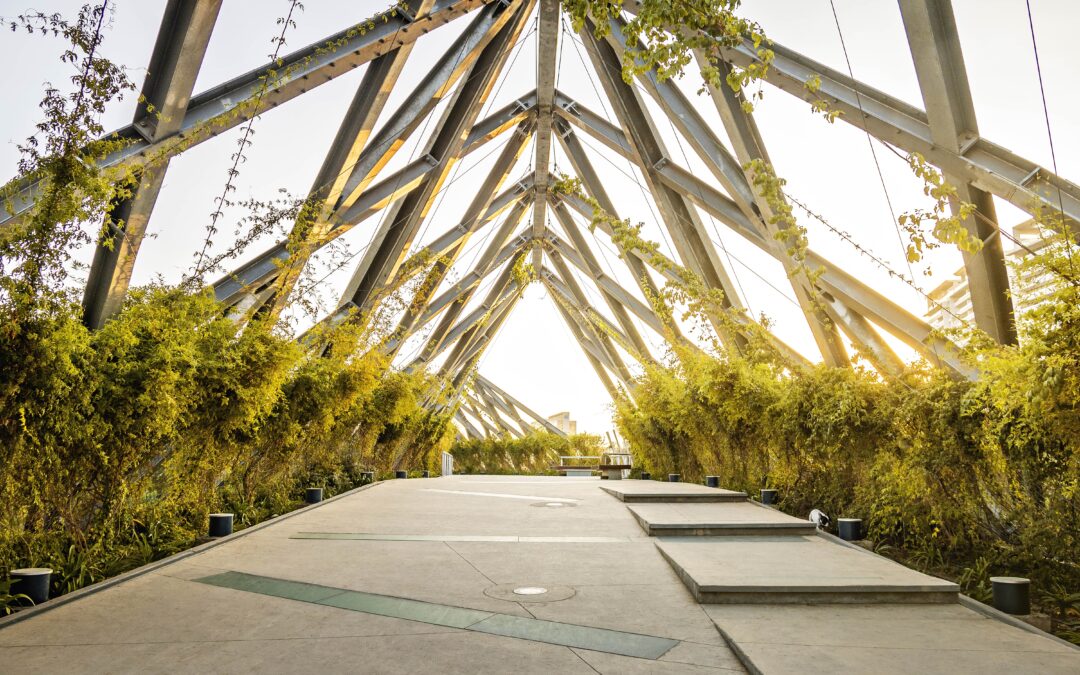This is the second post in “Complicating the Narrative on Bridging and Division,” a six-part blog series from CEP and PACE (Philanthropy for Active Civic Engagement). This series seeks to highlight community-informed perspectives from five leaders in the build-up to the second event in CEP’s 20th Anniversary Virtual Learning Sessions: “Are We Better Off Divided? Philanthropy’s Role in Moving America Forward.”
The most common refrain in the U.S. today is that we are more divided than we’ve been in generations — not only along partisan lines, but also across racial, religious, socio-economic, and geographic divides. These splits are becoming increasingly easy for leaders to exploit for profit and popularity.
It’s also becoming far too easy for all of us to break rather than bridge in our daily lives. The hyper-charged nature of our debates and the divisive algorithms that fuel our media consumption are leading us to an increasing disunion and barbarization of people who are different than our own group.
I see this up close every day. After more than a dozen years working on immigration justice issues, it’s become clear to me that much-needed policy change is being held hostage by those who are dividers rather than those who are seeking solutions. The decades-long battle for changes to our immigration laws is colored by zero-sum thinking that presumes if an immigrant gains something (the ability to work or stay in the country, for example), a person born in the U.S. loses. It’s frustrating and painful and has even at times turned some advocates into dividers, praising those who stand with us and demonizing those who don’t.
We are a nation plagued by zero-sum thinking. We often carry the false belief that if any other group gets something (power, justice, rights, education, etc.), our group gets less of that same thing. When we believe there are only winners and losers in society, it then becomes easy to feel that those who work on the other side of an issue are our enemies. Indeed, this powerful narrative drives much of our decision-making today.
How can we begin transcending this default setting of demonizing the other side? How do we advance an abundance mindset that inspires us to strive for a nation that’s better for all — for my people and your people — and that enables us to work through our disagreements rather than cut off the discussions?
In my view, the only way out is a radical shift in mindset. This can be realized, over time, if we make a deep commitment to bridge-building programs and strategies that advance social cohesion, pluralism, and national unity alongside our commitments to rights and justice.
I believe if we don’t do the hard work of bridging divides and building social solidarity as we work towards justice, we won’t achieve the just and pluralistic society we desire — one where disagreement fuels better solutions rather than deep divisions.
Americans are trapped in zero-sum thinking.
It’s not a stretch to believe that we are socially and politically polarized because we are all operating, to some degree, in zero-sum thinking. This winners/losers mentality makes every debate feel existential, leaving us more willing to break the rules to win. In the process, we begin to see entire groups of people as threats, whom we then dehumanize through our words and actions.
Zero-sum thinking also permeates the debate around which comes first: justice and accountability or unity. Some argue no unity before justice; others argue the inverse. But this is a false choice born of the belief that we can’t have both, that we can’t strive for both, and that they are in competition, not synergistic. In truth, the tables where we sit to build social cohesion and mutual respect are the same ones we can use to organize for justice, and vice versa. The more I know and care for others, the less likely I am to demonize them and the more likely I am to fight for them.
A society where justice and unity are understood as co-dependent will do better than a society that chooses one over the other.
Where civic engagement and bridging come together
Civic engagement that works to intentionally connect people across dividing lines helps unravel zero-sum thinking by exposing us to our common identities, struggles, and dreams. It helps us realize we are not in competition with each other and recognize the forces that may be pulling us apart.
We need a versatile set of engagement methods that allow for the variety of ways people are comfortable engaging with others. For example, some people might be willing to participate in a traditional civil or deliberative dialogue across differences. Others may prefer a lower-stakes onramp like community beautification projects and faith- and school-based activities. And others still may need the help of friends, work colleagues, or family members to take them along their first steps. Whatever the strategies are, they must be persistent and sustainable.
The fundamental question is how to engage people in bridging activities that they would never sign up for on their own, whether due to fear, time, or other constraints. This is when we can start chipping away at the dehumanization made possible by the insular bubbles so many of us live in.
Is it possible to animate the places where people naturally connect and layer them with the right kinds of bridging activities designed to promote empathy, share vulnerability, or simply recognize common humanity and shared purpose? Can foodbanks, community gardens, houses of faith, grocery stores, and sports venues create opportunities to bridge and connect?
When we lack the opportunities to connect socially and genuinely, we become strangers to each other, increasingly susceptible to destructive narratives, myths, and misinformation about people we don’t even know.
First-hand experience is key. Social science research is consistently showing us that Americans trust their experiences and the people they are closest to more than anything else. This form of information gathering — “seeing it with my own eyes” — far outweighs any other sources of official information. According to the National Academy of Science, “The current distrust of facts suggests that the route to perceived rationality and respect may paradoxically lie in personal experience. Statistics can be doubted and countered with other statistics, but first-hand experiences have an aura of unimpeachability.”
Philanthropy can and should incentivize unity and disincentive division.
Foundations can and should lift up leaders who embrace social cohesion and support work that bridges differences and builds community. Foundations can ensure that the well-oiled programs that feed, clothe, and otherwise support people in America all have bridging components so that it becomes a normal part of program delivery.
Philanthropy can help ensure their grantees are not contributing to polarization by helping them interrogate whether they are engaging in zero-sum thinking and acting in their work. For example, foundations can ask their grantees probing questions in grant reports to ensure they aren’t dividing people — intentionally or unintentionally — or demonizing their opponents. If a funder sees policy grantees resorting to breaking behavior, they can ask if that grantee can approach the same work with a bridging mindset instead. Or they can ask service-providing grantees how they’ve integrated relationship building into their delivery systems.
Foundations can also ask themselves how their own processes might be contributing to scarcity mindsets. Do we only invest in outcomes and not the processes to achieve them? Do we support collaboration and partnership between complementary organizations? Asking questions like these can be critical for encouraging introspection across the sector.
Foundations have a critical role to play in socializing new norms of engagement and behavior.
They can and should help reinvigorate our mutual bonds with one another so that we are able to get back to fixing many of our nation’s most pressing problems and striving for more, with an abundance mindset.
The beloved community is just and united, and it’s within our reach.
Wendy Feliz is the founding director of the Center for Inclusion and Belonging at the American Immigration Council. Follow her on Twitter at @WendyIsFeliz.
We are interested in diversifying perspectives and democratizing this conversation. If you would like to share your thoughts on the questions we’re posing to respondents in this series, please do so here.


